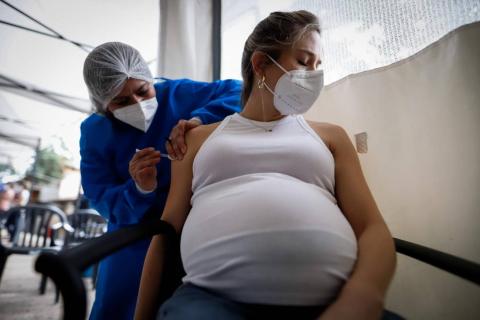Reaction: a study concludes that the monoclonal antibody nirsevimab reduced the risk of hospitalizations related to RSV in babies from Galicia
Nirsevimab substantially reduced hospitalizations of babies from late September to late December 2023 in Galicia, according to a study published in The Lancet Infectious Diseases. This monoclonal antibody is administered to babies to prevent lower respiratory tract illness caused by respiratory syncytial virus (RSV). In Galicia, over 9 out of 10 babies received nirsevimab, which, according to the research, reduced the risk of hospitalizations for RSV-related respiratory illness by over 80%.

Ángel Merino - VRS EN
Ángel Hernández Merino
Pediatrician and collaborator of the Advisory Committee on Vaccines, the Spanish Association of Pediatrics and the Spanish Association of Primary Care Pediatrics
This is about an anticipated publication, as it is known that those responsible for the RSV immunization program with nirsevimab in Galicia, since its inception in September 2023, have been registering and monitoring the relevant data. Partial data suggesting favorable results have also been disclosed. The publication in The Lancet Infectious Diseases presents the results of the first three months of the program (from late September to December 2023). Naturally, one must await data for the entire season, which concluded on March 31.
It's a significant study, of both individual and public health interest, with robust methodology. Notably, it's a population-based study encompassing all target children of the program, reflecting nirsevimab's real-world usage.
Furthermore, it's highlighted that the presented results align with those seen in pre-authorization studies (MELODY and HARMONY studies). Similarly, they are consistent with findings from another recent Spanish study published in EuroSurveillance, as well as with another European study on the subject.
A third noteworthy aspect is that, for the first time – as stated by the authors – effectiveness against hospitalization due to lower respiratory tract infection (LRTI) for any cause (69.2%; 95% CI: 55.9-78.0) and hospitalizations for any cause (66.2%; 95% CI: 56.0-73.7) are evaluated.
These data, coupled with the program's high acceptance and the consequent coverage achieved, suggest that the impact (reduction) on RSV infection incidence, particularly its more clinically severe forms, along with the impact on the healthcare system itself, has been significant.
Sonia Ares-Gómez et al.
- Research article
- Peer reviewed
- People



